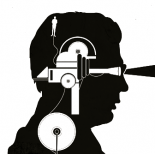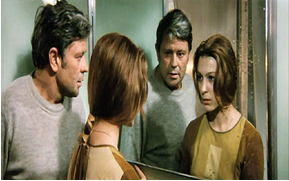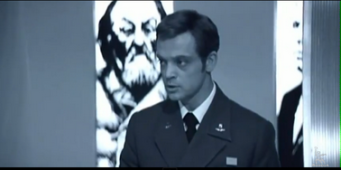In Solaris (1972), the characters create a clear line between the ‘visitors” and original humans. What is the difference that resides in Being? The nature of Being can be considered at the core of all of philosophy. Solaris presents humans alongside uncertain reproductions so that the viewers of the film are left to decide what makes Beings unique. In Solaris, the visitors are created by the imaginations of the original humans and this is provoked by Solaris. The visitors understand current space and understand that time is peculiar and unique.
I think the philosophy of René Descartes relates most closely with the film. Solaris (1972). René Descartes believes that the mind, is complete in itself and does not require anything physical in order for it “to be”. The mind knows with certainty that knowledge of the external world is in many ways doubtful. The self as mind exists as ‘thinking matter’ and is independent form the world of ‘extended matter’. Descartes separate the mind from the physical world. In many ways, Solaris follows the same philosophy. The characters on the ship cannot doubt because they are in a place they do not know. Since I was little, I was always told to learn from the past. I never truly grasped this idea until life forced me into certain situations where I had to relive my past. I had to relive it again, so that I would learn. The characters in Solaris experience a similar situation. They do not know who they are and so Solaris acts as an agent or a stimulant to help these guests approach themselves from a different angle. Descartes’ radical separation of the mind from the world has two philosophical conceptions of reality. That being, how people relate to their environment and how and where they perceive themselves in the world. In addition, we see in Solaris that the guests can only doubt externally. The nature of being is interwoven between these two concepts. What we see is not always real or true. And if it is true, what makes it true? Descartes says that the thinker’s body is subject to the laws of physics, but the mind is not. The body is secondary and external. A self that is as separated from the external world as that of Descartes can approach living beings and deal with them much more ruthlessly than someone who approaches them on the basis of the sympathy that one would have toward fellow-creatures. In Solaris, we see the nature of being and the self as a central issue and theme.







